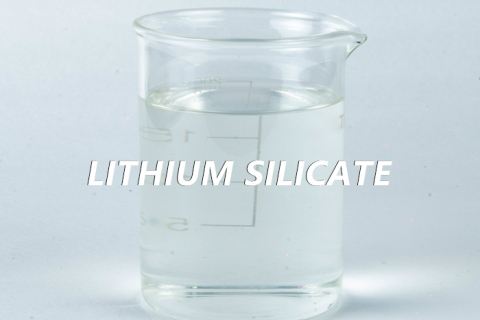
- Home
- >
News
Concrete is fundamental to construction, but its inherent properties can lead to common issues that impact a project's quality and longevity. These challenges, such as surface dusting, abrasion, and liquid penetration, can significantly increase maintenance efforts and costs over time. This article will explore these prevalent problems and demonstrate the practical value of lithium silicate as a robust solution.
Lithium Silicate, a water-based chemical compound, is widely valued in construction for its ability to enhance concrete surfaces. Applied as a densifier and sealer, Lithium Silicate penetrates concrete to improve hardness, durability, and resistance to wear.
Lithium Silicate, a reactive inorganic lithium salt, is a leading concrete densifier in modern construction. It penetrates concrete surfaces, reacting with calcium ions to form calcium silicate hydrate (C-S-H) gel, which fills pores and strengthens the matrix. This results in a denser, harder, and chemically resistant concrete surface. As a supplier, we provide Lithium Silicate optimized for performance and sustainability.
Lithium Silicate (Li₂SiO₃) is a vital material in advanced ceramics, especially glass-ceramics, due to its unique properties like high thermal stability and low thermal expansion. Widely used in dentistry, aerospace, and consumer goods, it enhances durability and aesthetics. This article explores lithium silicate ceramics’ role, properties, and applications.
Lithium Silicate is a high-performance concrete sealer and hardener, valued for its excellent penetration, strengthening properties, and eco-friendly nature. It significantly enhances the hardness, abrasion resistance, and durability of concrete surfaces, making it ideal for industrial plants, commercial buildings, parking lots, and more. As a sustainable solution, Lithium Silicate meets the construction industry’s demand for efficiency and durability.
With the rapid development of the construction industry in Southeast Asia, the demand for high-performance building materials is increasing. Lithium silicate, as a high-performance inorganic material, is widely used in construction due to its excellent durability, ability to enhance concrete performance, and environmentally friendly properties. This article explores the key applications and advantages of lithium silicate in the Southeast Asian construction industry to help customers better understand and choose this product.
In modern construction, material performance directly impacts building quality and longevity. Lithium Silicate, with its exceptional durability, impermeability, and environmental benefits, is becoming an ideal choice for building materials. As a professional chemical supplier, we provide high-quality lithium silicate products to help clients enhance construction quality and performance.
As the demand for new materials in the construction industry continues to grow, lithium silicate has emerged as a high-performance building material that has gained wide attention. Its unique chemical and physical properties make it a valuable component in concrete, coatings, and other construction materials. This article will explore the characteristics, applications, market trends, and future development directions of lithium silicate.
Lithium silicate, as a high-performance inorganic additive, demonstrates exceptional capabilities in optimizing the properties of ready-mixed mortar. With outstanding chemical stability and multifunctionality, it is widely used in the construction industry, ensuring improved mortar performance and superior construction quality.
Lithium Silicate, with its outstanding properties such as impermeability, alkali resistance, environmental friendliness, and durability, is proving to be a promising material for enhancing the longevity and resilience of construction materials. Its ability to form a dense silicate gel within surface micropores provides effective protection against water ingress and chemical deterioration, extending the lifespan of buildings in various environments.
Concrete is an indispensable and important material in construction projects, and its performance directly affects the quality of the project. In recent years, researchers have discovered that adding lithium silicate to concrete mortar can significantly improve the strength, durability and crack resistance of concrete.
Lithium silicate is an emerging positive electrode material for lithium-ion batteries, which has excellent characteristics such as high energy density, high voltage platform, and long cycle life. Compared with traditional lithium cobalt oxide and lithium manganese oxide, lithium silicate has obvious advantages in energy density, safety and cost, and has become the first choice for new energy vehicles and large energy storage systems.












